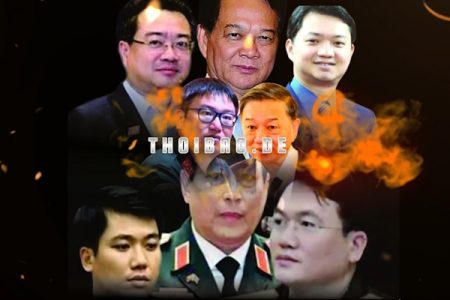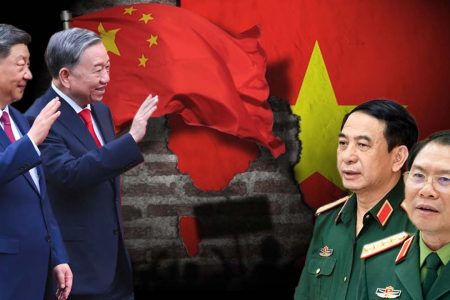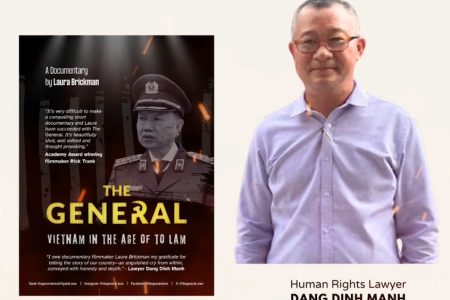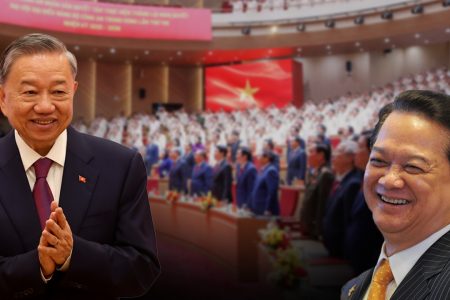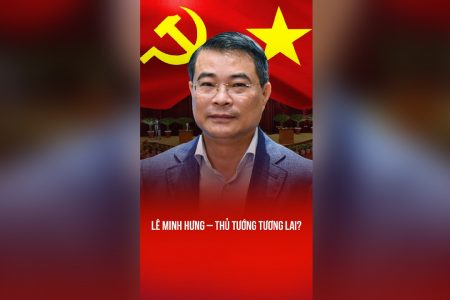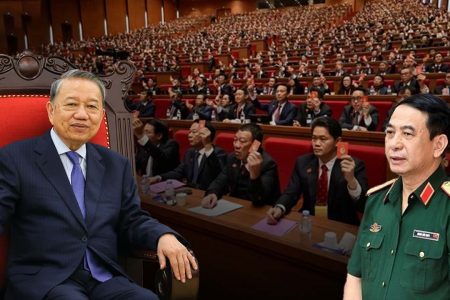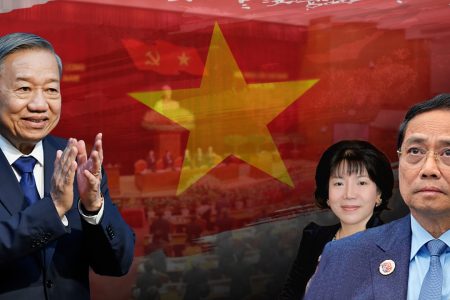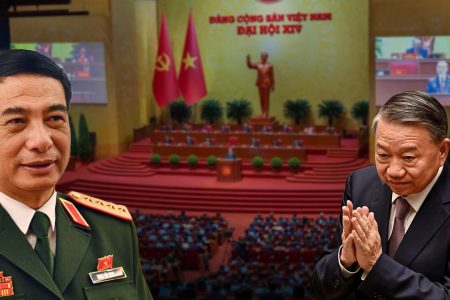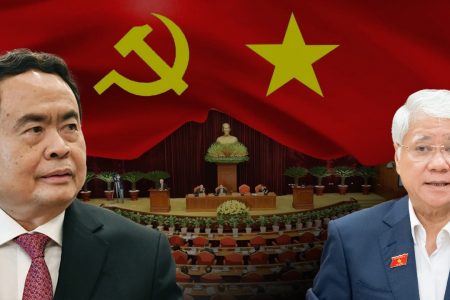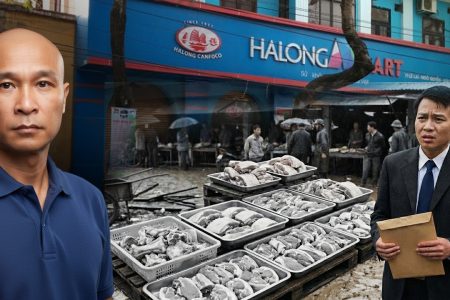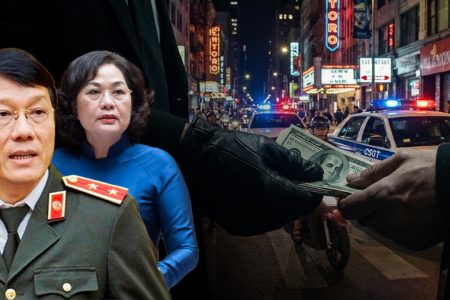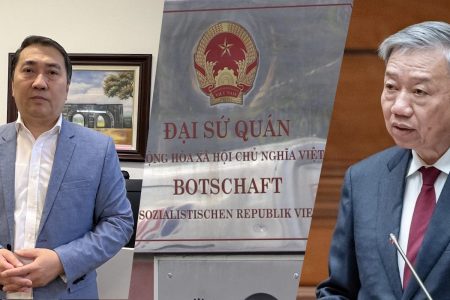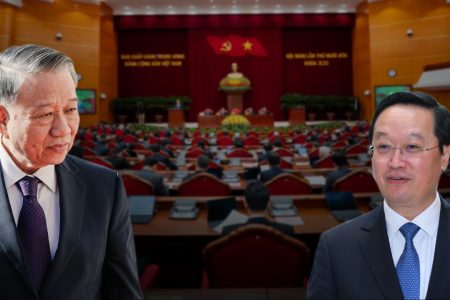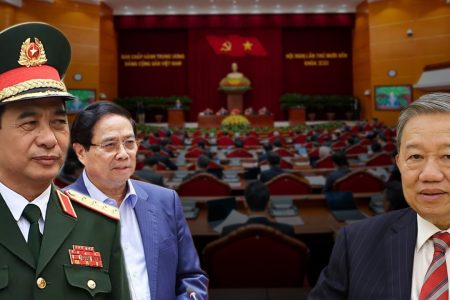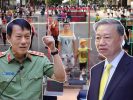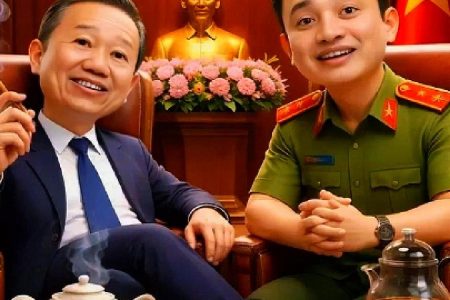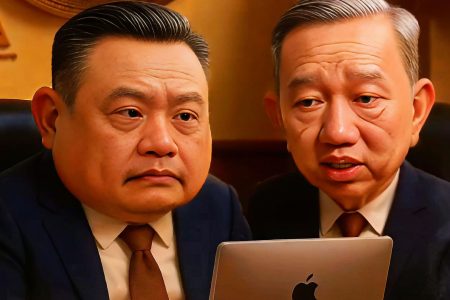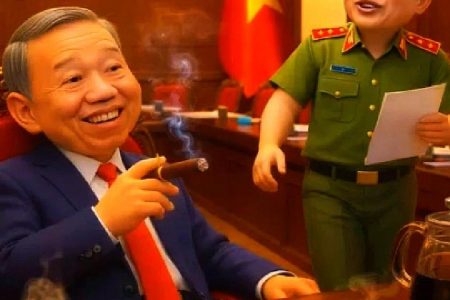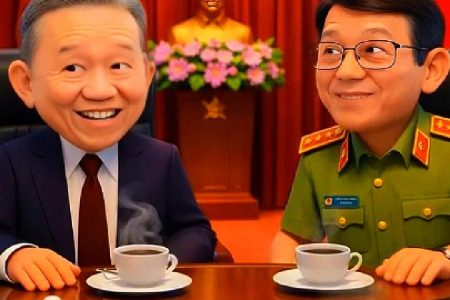On April 8, in Hanoi, Vietnamese Defense Minister General Phan Van Giang chaired a conference of defense leaders on organizing local military units after merging provincial administrative units while eliminating district-level administrative units.
At this meeting, General Giang requested the agencies to research and advise on arranging provincial military commands and provincial Border Guards according to the merged provinces to ensure comprehensiveness and synchronization.

This is considered Giang’s failure before General Secretary To Lam’s tough decisions. In the end, Giang had to implement the policy proposed by the party chief who is a former police minister.
It is known that when Lam first issued the policy, Giang had fought back. He told the former police chief:
“But if the armed forces lose one meter in one place, they will die. And I suggest that the General Secretary let us study it carefully. But the armed forces and the army also have district levels. We also study it. To tell you the truth, we are very calm. Because our tasks are very different. I apologize to you, comrades, but if we lose an economic gamble, we can win it back. Of these 10 projects, we won 7 and lost 3, and it is still positive, still profitable. Even if we win 3 and lose 7, and add it to the positive, it is still development. But if the armed forces lose one meter in one place, the country will suffer greatly. The army forces must also calculate very carefully. I hope you are impatient. I also feel the responsibility, but I also report to the General Secretary and suggest that we study it carefully.”

No matter how much research is done, the opinion of the Defense Minister is ultimately „thrown in the trash“ as only Lam’s orders are supreme.
Regarding general policies, Lam applies them to all localities and all ministries and branches, so Giang cannot use any excuse to evade. However, in the issue of national defense in particular, policies that are specific to the country, Lam seems to have little influence, Giang still has the super power in the Defense Ministry, especially in the appointment of personnel and promotion of army generals.
Thus, it can be seen that Lam wants to force Giang into a framework but it is not easy for Lam to force Giang to always comply with all his decisions. In the Defense Ministry, Lam’s influence is limited because there are also the voices of Giang and State President Luong Cuong, who was a former chief of army’s General Department of Politics.
If there is nothing unusual, at the 14th party’s National Congress slated in early 2026, Giang will retire due to health reasons, the replacement is expected to be General Nguyen Tan Cuong. Cuong was promoted to General at the same time as Minister of Public Security Luong Tam Quang after an agreement between Lam’s police faction and Giang’s military faction. Once again, Giang needs a trusted junior to fill his seat so as not to face the same danger as Senior Lieutenent General Nguyen Chi Vinh, who mysteriously died a few years ago after retirement.
In order to control the army, the best way is for Lam to promote General Hoang Xuan Chien as a defense minister for the next term. To do so, he must find a way to eliminate Cuong, but it seems not easy, because Cuong is holding great power. The position of Chief of the General Staff of the army has given Nguyen Tan Cuong the ability to protect himself from other forces.
If he were not from Hung Yen, General Chien would not have had a chance. However, with the support of Lam, General Chien is currently considered a strong candidate. There are about 8 months left until the battle is over, let’s wait and see how Lam’s faction will overcome Giang’s faction? Politics will promise many surprises in the coming time.
Tran Chuong -Thoibao.de



